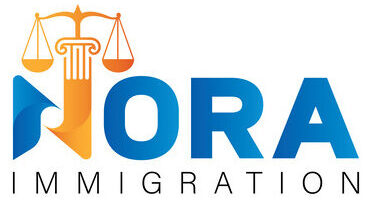Introduction
Applying for a UK Family Visa, whether it is a Spouse Visa, Fiancé Visa, or Partner Visa, often comes down to one crucial factor: the financial requirement. This rule, commonly known as the Minimum Income Requirement (MIR), is designed by the Home Office to ensure that applicants and their families can support themselves in the UK without relying on public funds.
Since its introduction in July 2012, the MIR has been one of the most debated elements of UK immigration law, particularly because of its impact on couples and families. As of April 2024, the threshold rose significantly, and in 2025 it remains an essential part of every application.
This guide provides a full explanation of how the minimum income requirement works, what counts toward it, common mistakes applicants make, and how to prepare a strong application.
Current Minimum Income Requirement (2025)
-
The sponsor (the British citizen or settled person in the UK) must demonstrate an annual income of at least £29,000 to sponsor a partner or spouse.
-
This figure increased from £18,600 in April 2024 — a substantial jump that has affected thousands of families.
-
The government has proposed further increases in the coming years (potentially up to £38,700), but as of mid-2025, the official threshold remains £29,000.
-
For applicants including dependent children, the requirement may rise further. Historically, it was an additional £3,800 for the first child and £2,400 for each subsequent child, but the 2024/25 reform simplified this by raising the base income to £29,000, which already covers children.
Who Needs to Meet the Requirement?
-
UK citizens or individuals with Indefinite Leave to Remain (ILR) who want to sponsor a spouse, fiancé(e), or unmarried partner.
-
The rule applies whether the partner is applying from abroad or already in the UK under a different visa category.
-
Some exemptions exist for sponsors receiving certain disability or carer benefits, in which case the income threshold is waived but the sponsor must demonstrate adequate maintenance.
Ways to Meet the Minimum Income Requirement
There are several categories of income and savings that the Home Office accepts:
1. Employment Income (Salaried or Non-Salaried)
-
Income must come from lawful employment in the UK.
-
Salaried jobs (fixed annual salary) and non-salaried jobs (hourly/variable) are both accepted.
-
Evidence required includes:
-
Payslips for the last 6 months (if employed for less than 6 months in current role, a 12-month history may be needed).
-
Bank statements showing deposits.
-
Employer letter confirming job title, contract type, salary, and duration.
-
2. Self-Employment Income
-
Accepted from self-employment as a sole trader, in a partnership, or as a director of a UK-registered company.
-
Requires submission of:
-
Tax returns (SA302).
-
HMRC self-assessment documents.
-
Company accounts and dividend vouchers if applicable.
-
3. Savings
-
Cash savings can be used either alone or to make up a shortfall in income.
-
The minimum acceptable savings amount is £88,500 if relying solely on savings (based on the formula: £16,000 + 2.5 × shortfall).
-
Savings must be held in the applicant’s or sponsor’s name for at least 6 months before application.
4. Pension Income
-
UK or overseas pension income can contribute toward meeting the requirement.
-
Evidence must include official pension statements or bank statements showing regular pension deposits.
5. Other Income Sources
-
Rental income from properties.
-
Dividends or investments (must be in the sponsor’s or applicant’s name).
-
Maternity, paternity, adoption, or sick pay.
Exemptions and Special Cases
-
Exemptions for Benefits Recipients
If the sponsor receives certain benefits (e.g., Disability Living Allowance, Carer’s Allowance, Armed Forces Compensation Scheme payments), the income threshold does not apply. Instead, they must prove adequate maintenance — enough to support their family at income levels equivalent to or above Income Support standards. -
Children Affected by the Rules
-
The rules apply even if the children are British citizens, though the higher income requirement per child was removed in 2024.
-
If sponsoring multiple dependants, evidence of financial stability becomes even more important.
-
-
Applications from Abroad vs Inside the UK
-
Applicants applying from outside the UK must show income in the UK — overseas income generally does not count unless the sponsor has secured a UK role.
-
Those applying from within the UK may sometimes rely on overseas income if they are already working and moving into permanent employment.
-
Common Mistakes Applicants Make
-
Insufficient Documentation: Even if you meet the income level, failure to provide the exact documents required by the Home Office can lead to refusal.
-
Short-Term Contracts: Relying on a temporary contract without evidence of renewal can weaken the case.
-
Incorrect Use of Savings: Many applicants miscalculate the formula for combining income with savings.
-
Overestimating Foreign Income: Overseas salaries often cannot be counted unless strict conditions are met.
-
Ignoring Tax Rules: Self-employed sponsors often fail to submit proper HMRC tax documents.
Real-World Impact of the Minimum Income Requirement
The sharp rise from £18,600 to £29,000 has left many families struggling:
-
Applicants in lower-income jobs or part-time work are now excluded unless they combine savings.
-
Many families must delay reunification while sponsors increase income or secure a better job.
-
Campaign groups and legal challenges argue the rules are discriminatory, but as of 2025, the threshold remains enforced.
At Nora Immigration, we see this daily. Many genuine couples are impacted, but with careful financial planning and correct use of savings, successful applications are still achievable.
How to Strengthen Your Application
-
Plan Early
Start preparing documents months before applying. Employment history, savings records, and tax documents must cover specific periods. -
Get Employer Cooperation
An employer’s letter confirming all required details is crucial. Employers sometimes omit information, leading to refusal. -
Use Savings Correctly
Calculate the shortfall carefully. For example:-
If your income is £25,000, you fall short by £4,000.
-
Multiply by 2.5 = £10,000.
-
Add £16,000 = £26,000 minimum savings required.
-
-
Check for Exemptions
If you receive a qualifying benefit, you may not need to meet the £29,000 threshold. -
Seek Legal/Professional Guidance
Immigration law is unforgiving. A small mistake in documentation can cost thousands in fees and cause long delays.
Frequently Asked Questions
Q: Can my partner’s income from abroad count toward the requirement?
A: Not usually, unless they are already in the UK working legally.
Q: Do I need to maintain £29,000 every year?
A: You must demonstrate this income at the time of the application, based on the last 6–12 months.
Q: If I don’t meet the requirement, can I still apply?
A: Applications below the threshold are almost always refused, unless there are exceptional circumstances under Article 8 (family life/human rights) grounds.
Q: Will the threshold rise again soon?
A: The government has proposed raising it to £38,700 in the coming years, but as of 2025, the official figure is still £29,000.
Conclusion
The Minimum Income Requirement remains one of the most challenging parts of the UK Family Visa process. With the threshold now set at £29,000, families must prepare thoroughly, document every source of income, and avoid common mistakes.
At Nora Immigration, we understand how stressful this requirement can be. Our team helps clients calculate income and savings correctly, prepare compliant documentation, and strengthen their applications to maximise approval chances.
If you are planning to apply for a UK Family Visa in 2025, get in touch with us today. Careful preparation is the key to bringing your loved ones to the UK successfully.


